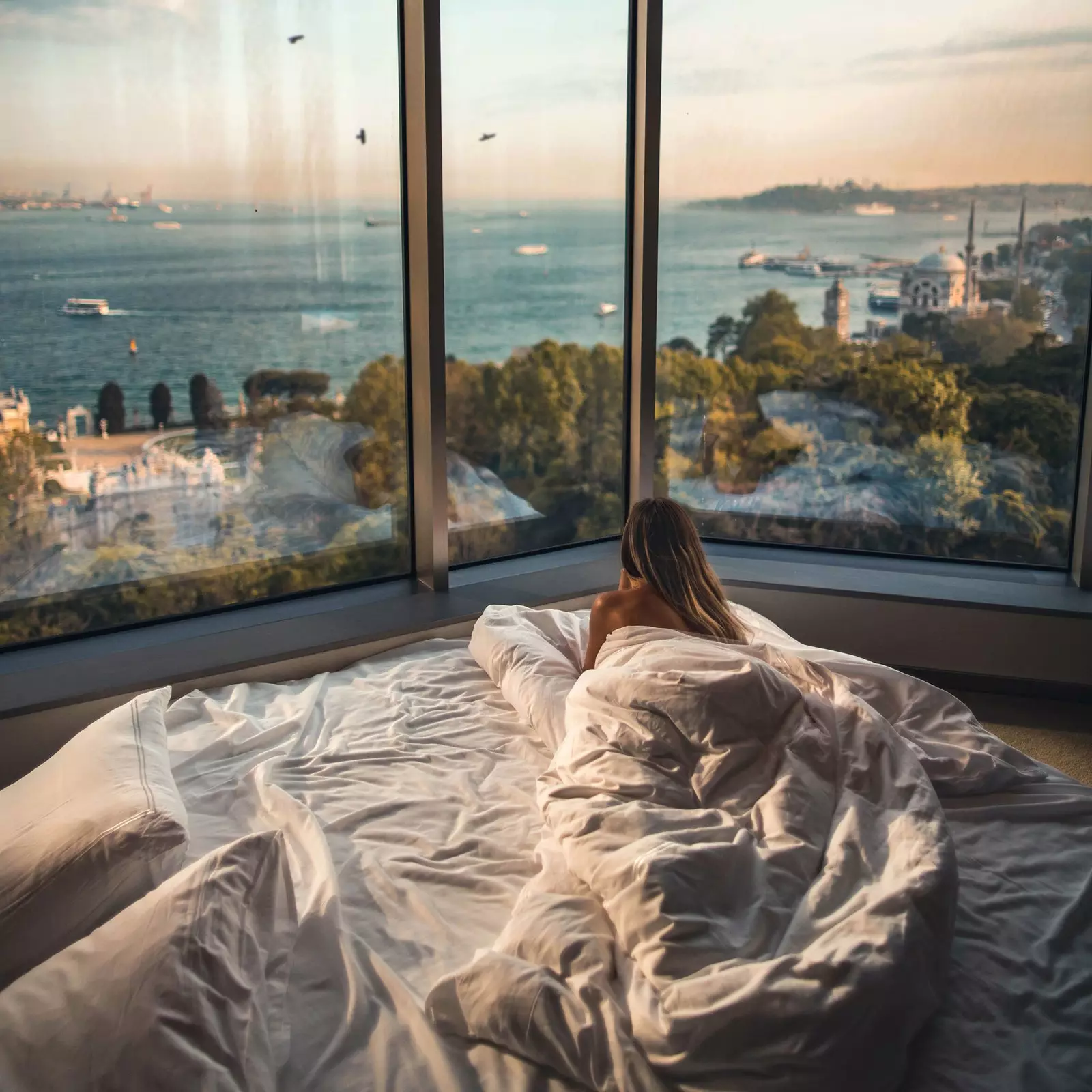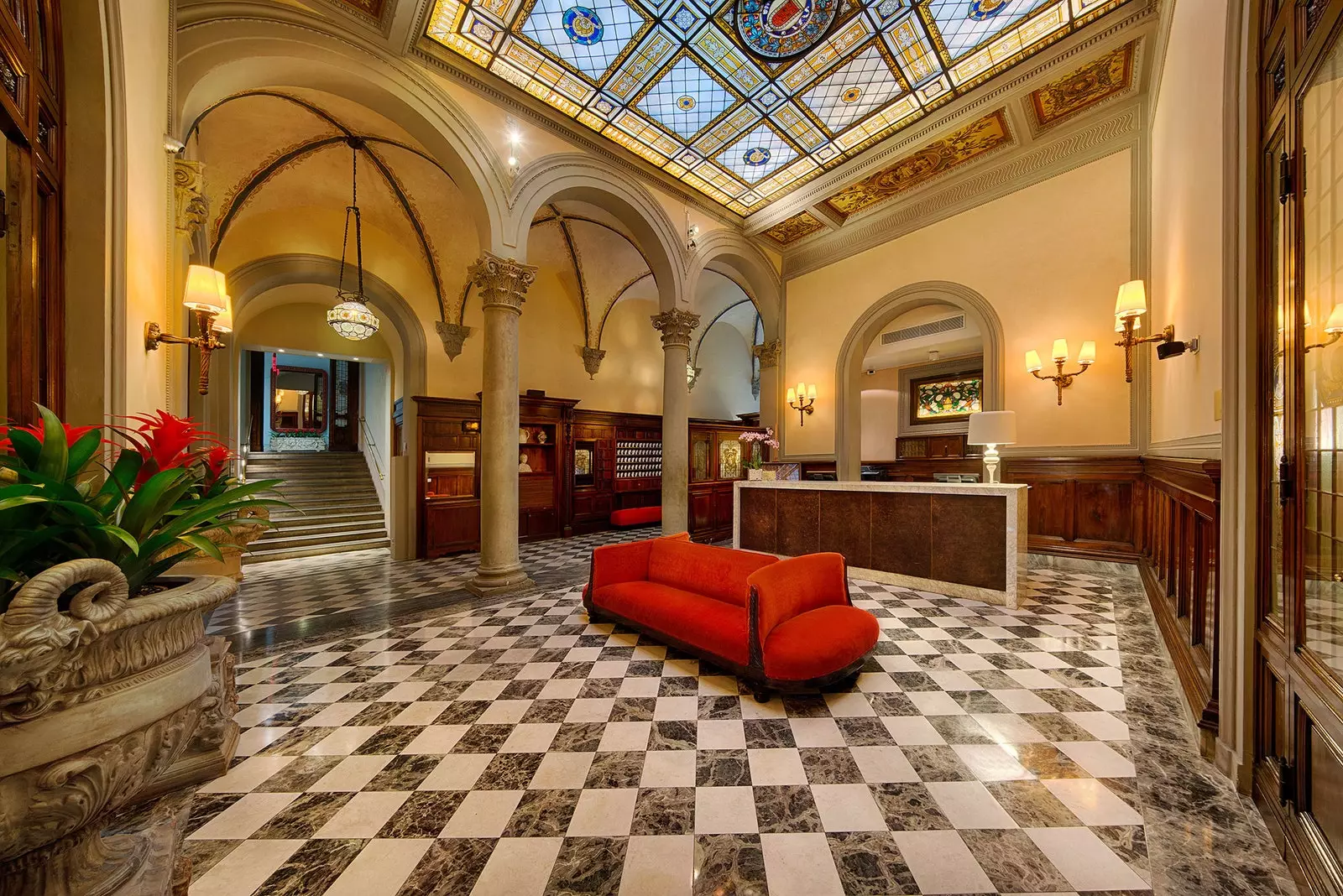
What will it be like to stay in a hotel?
Maintain the safety distance, even stricter and more frequent hygiene and common sense. This is how it sums up Alvaro Carrillo de Albornoz, director of ITH (Hotel Technical Institute) , the “protocol of measures for the risk reduction hygienic-sanitary against COVID-19” that is expected to be approved today by the Ministry of Health. Of simple application and open to the particular circumstances and characteristics of each establishment and (this is important) to the possible modifications that arise as we advance in the de-escalation phases, this protocol of minimum requirements to carry out a safe reopening has been produced by the ITH and the CEHAT (Spanish Confederation of Hotels), under the coordination of the ICTE (Institute for Tourist Quality). In order to contribute all the points of view, different hotel associations from all over the country, chains such as Meliá, NH or Paradores, and a good representation of all Spanish accommodation. All kinds of accommodation: large, small, vacation, urban, convention, independent, chain, beach, inland...
Waiting for the possible modifications of the Ministry of Health, Carrillo emphasizes that "it is a package of easy-to-implement measures so that any type of hotel establishment can assume them. Perhaps there will be a hotel that prefers to place transparent screens because, in addition to insulating, they look good, and others that opt for signs on the floor because they consider that the screens are invasive or because they simply cannot make that investment. Does not matter. The important thing is to keep the safety distance and the capacity determined by each phase and, later, that each hotel take the measures that it considers most opportune”.
Below, we dissect all these changes, big or small, that await us in hotels.
OBJECTIVE NUMBER ONE: KEEP A SAFE DISTANCE AND BE EVEN STRICTER WITH CLEANLINESS
How? With capacity control, online check-in to not have to wait at the reception (even to not have to go through it) and lots of signage Informative posters for guests and staff, marks on the floor of the reception as we have already become accustomed to seeing in supermarkets and surveillance so that these distance measures are complied with. Use gloves, masks and hydroalcoholic gel everywhere, even in the bins. “This, which is really only two things and seems so simple, is going to change the procedures and, in many cases, make them more expensive because we are going to be less efficient. And I say less efficient because an employee will only be able to serve a single customer at a time, We will not be able to go with several people in the elevator, nor will we all go to the restaurant together, nor to the pool…”, explains the director of the ITH (Hotel Technical Institute).
COMMON AREAS: BY PHASES
In phase 1 the common areas will not be available. In phase 2 they will open a third of the common areas and, in phase 3, half, such as the pool, gym and restaurants. But it will not be until the end of phase 3 when we Spaniards will be able to travel between provinces, so the question is: who is going to stay in a hotel until that happens? “I know that some chains with urban hotels, such as NH or H10, are going to open some of their establishments to serve people who have to travel yes or yes and to start testing the protocols, but removing those exceptional cases I think that the logical thing will be that until phase 3 is completed, until interprovincial travel is not allowed, very few hotels will open, more than anything because they will not be in demand, ”says Carrillo.
TECHNOLOGY, YES OR NO?
Robots, thermographic cameras that measure temperature remotely, online check-in... “We have not wanted to introduce mandatory technology because we understand that this is a temporary circumstance. If a hotelier wants to install volumetric cameras with biometric recognition because it is very modern or feels more secure, perfect, but we have avoided this type of obligation. However, what is clear is that technology can now be of great help to us and that some will come to stay because they will make our lives easier”, reports Carrillo.
WILL I BE FORCED TO MEASURE MY TEMPERATURE WHEN I ENTER A HOTEL?
In principle, no, although it will depend on the establishment. What will be mandatory is to have thermometers available at reception to take the temperature from a distance.
HOW DO YOU HAVE TO TAKE THE ELEVATORS?
You alone, unless you go with the people you live with or, if you have to share it, always (and everyone) protected with masks.
MINIMIZE DECORATION
Again common sense. Is that little vase of flowers necessary? Do you need so many cushions, so many towels, so many tables? “If every time a person touches something, or there is the slightest possibility that they have touched it, it has to be thoroughly disinfected, the easiest thing is to remove it . It is very important that we understand, both guests and hotel staff, that all these measures, all these decisions are for our safety."
IS IT SAFE TO SLEEP IN A HOTEL ROOM?
Yes. The room will probably be the safest space in the entire hotel. All towels, bedspreads, blankets, pillows will be sealed in plastic bags and bedding, lingerie and all the textiles that we will find in our room will have been washed at more than 60 ° C . It is best to do without fabrics that do not withstand this temperature, as well as all those objects that we find on tables (pens, notepads, magazines...) and unnecessary decorative details that complicate the disinfection guarantee. And the minibar? The decision will depend on each hotel, but it is clear that it will be easier to manage if you do without it. Nobody will enter your room during your stay, room service will be left at the door and the cleaning staff will follow a special protocol for handling used bedding and lingerie , that will avoid shaking and not leave on the ground and that will be removed inside sealed bags.
WILL I BE ABLE TO GO TO THE POOL? The water, well treated with chlorine and the appropriate PH, is disinfectant, so the attention will fall, again, on the capacity and on the cleaning of the sun loungers. Anyway, the pools, in principle, they will not open until phase 3.
**GOODBYE BREAKFAST BUFFET? **
Sorry, but yes. Well, relatively... The breakfast buffet is what is going to change the most in restaurants. The buffet as we knew it is over, with trays, containers and open jars so that everyone can help themselves to what they want. “Every time one picks up a tweezers, a spoon or touches something, it should be disinfected, so the solution is the assisted Buffet, separated by a customer partition, single individual doses or service directly at the table. **Also forget about finding small vases with flowers, candles or oil bottles on the table. **
A NEW ENVIRONMENTAL PROBLEM?
Single dose, disposable gloves, single-use plastics... "If this continues over time more sustainable alternative solutions will have to be considered because, although right now the priority is health, it cannot be at the cost of continuing to fill the planet with more plastics. I understand that the health emergency comes first, but I am afraid that we are going backwards in everything that we had achieved in education and in raising people's awareness, "concludes Carrillo.

NH Collection Porta Rossa
